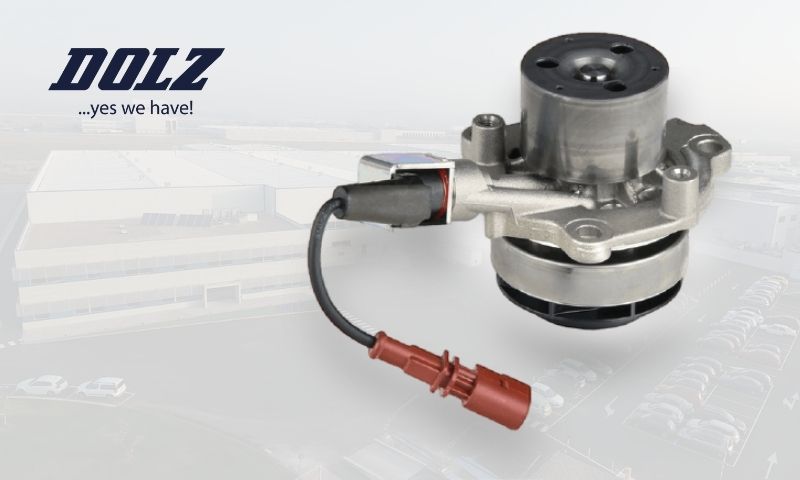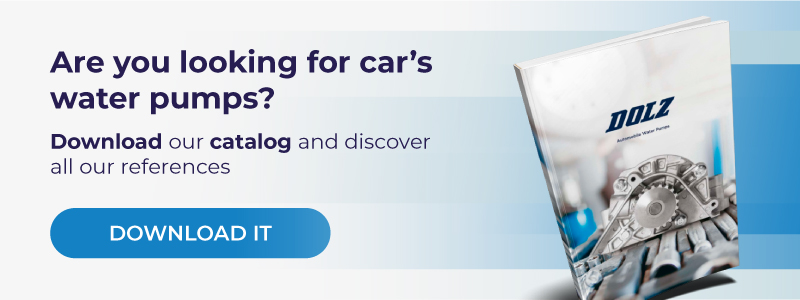Variable/Switchable water pumps are mechanical water pumps with variable operation, which through different systems allow the impeller to move or not the coolant, according to the needs of the engine and defined parameters of the vehicle.
Unlike traditional water pumps that constantly circulate the coolant, variable water pumps do not run all the time, but supply the coolant only according to current needs.
As we could see in previous posts, water pumps play an essential role in the proper functioning of the engine. Therefore, the optimization in the cooling system with the efficiency in the consumption and emissions of the vehicle mean that more and more vehicles incorporate this type of switchable pumps.
Variable water pump operation
As its name suggests, this type of water pump can be variably controlled. In other words, they only circulate coolant when needed. In this way, the time to reach the optimum temperature of the engine is shortened thanks to the variable performance of the pump, which helps to warm up the engine more quickly when the engine starts cold.
The mechanism that operates this variability function of the water pump is a magnetic valve, connected to the body of the water pump, which adapts the capacity of the flow rate to the different operating conditions of the engine. The engine control unit enables or disables this function.
An example is our part number A255V, which has a ring around the impeller, which receives the order from the vehicle’s control unit to go up or down, allowing the impeller to run or not the coolant.
The component to transmit orders to the water pump is the electric actuator, it is mistakenly thought to be a temperature sensor, but all it does is transmit the order to raise or low the ring that surrounds the impeller.
Depending on the water pump model, variable water pumps can be connected with a cable or a molded connector (solenoid valves).
This variable system guarantees the proper operating conditions of the engine block. When the variable water pump is “on”, the flow of the coolant circulates unhindered to the cooling circuit. On the other hand, when its state is “off” it causes the magnetic valve to activate and therefore the impeller can not move the coolant.
Among the advantages of the variable water pump, we find:
- Ability to manage water pump speed through controls without compromising required cooling.
- Overall better vehicle performance.
- Reduction of the CO2 emission that is emitted into the atmosphere thanks to the generation of a variable flow.
- Reduction of fuel consumption.
Keep reading: Types of automotive water pumps
Know more about Dolz’s variable water pump
Dolz offers mechanical, auxiliary, electrical and variable water pumps for more than 97% of the European vehicle fleet.
Its range of variable pumps currently totalize more than 10 PN’s, both for Tourism and Industrial Vehicle.
These variable water pumps are designed with the latest technology for the highest efficiency. For this reason, Dolz variable water pumps can be divided into two different types:
- Variable water pump with PSF technology (Pneumatically Switched Flow – digital control for mechanically driven pumps). This system allows that, through a vacuum system, the water pump varies in flow depending on the different needs required by the engine.
- Variable water pump with ECF technology (Electro-hydraulically Controlled Flow. Water pump can regulate the flow rate in between with a modulated hydraulic pressure). This system is based on the on/off principle able to control continuous flow.
All of them have 100% cast aluminum material, resistant to wear and OE equivalent, always following the highest standards.
Dolz, an expert manufacturer of water pumps since 1934.


